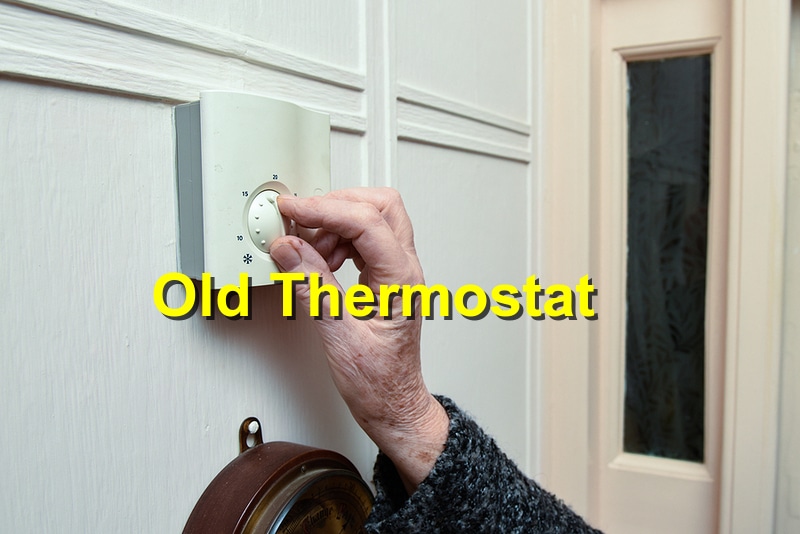An old thermostat can indeed contribute to higher energy bills. Outdated thermostats lack the advanced features and precision of modern thermostats, which can lead to inefficient heating and cooling practices. Here’s how an old thermostat can impact your energy costs:
Limited Temperature Control: Older thermostats often have limited temperature control options. They might only offer basic settings like “heat,” “cool,” and “off,” without the ability to set specific temperatures or program schedules. This can result in your heating or cooling system running longer than necessary, leading to energy waste and higher bills.
Inaccurate Temperature Readings: Over time, the sensors in older thermostats can become less accurate due to wear and tear. This can lead to the thermostat not accurately reflecting the actual room temperature. As a result, your heating or cooling system might not turn on or off when it should, causing temperature imbalances and energy inefficiency.
Lack of Programmability: One of the biggest advantages of modern thermostats is their programmable capabilities. Old thermostats often lack programmable features, which means you can’t set different temperature levels for different times of the day or days of the week. This results in your heating or cooling system operating at a constant temperature even when you’re not at home or when you’re sleeping, leading to unnecessary energy consumption.
No Adaptive Features: Many modern thermostats, such as smart thermostats, have adaptive features that learn your preferences and adjust the temperature accordingly. They can also factor in weather forecasts and occupancy patterns. Old thermostats lack these features, which means they can’t adapt to changes in your routine or the weather, potentially leading to overuse of heating or cooling systems.
Manual Operation: Older thermostats often require manual adjustments. This can be inconvenient and lead to temperature inconsistencies. For example, if you forget to adjust the thermostat before leaving for the day, your heating or cooling system might run unnecessarily, increasing your energy consumption.
The Benefits of Upgrading: Upgrading to a modern thermostat, especially a smart thermostat, can help you save on energy costs. Smart thermostats allow you to set customized schedules, control your HVAC system remotely, and even receive energy usage reports. Some models can adjust the temperature based on your location, ensuring efficient use of energy. Additionally, they provide more accurate temperature readings and are generally more reliable than older models.
In conclusion, an old thermostat can definitely cost you money on your energy bills due to its limited features, inaccurate temperature readings, and lack of programmability. Upgrading to a modern thermostat, especially a smart one, can help you optimize your heating and cooling practices, reduce energy waste, and ultimately save on your energy expenses.
References: AdventAir, Heatingspecialties

